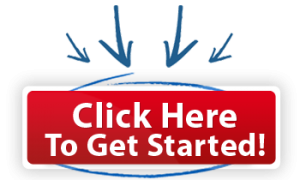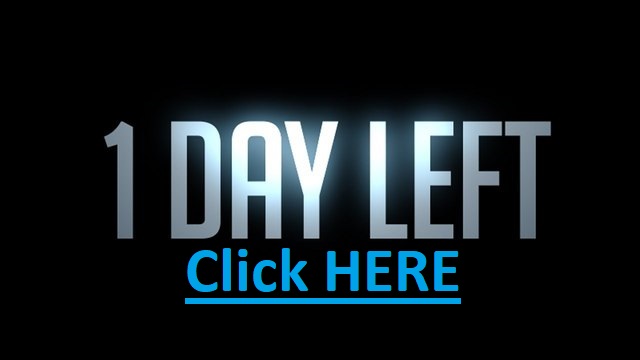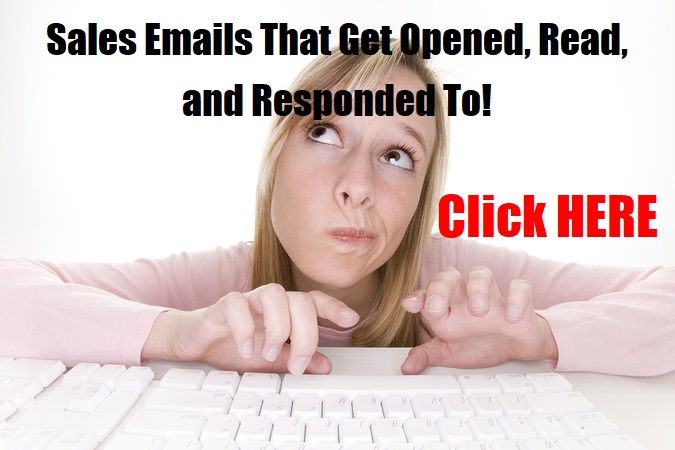There is a lot of conversation among salespeople about “canned pitches.”
Old and wise friend, Joe Klock www.joeklock.com makes an excellent point when he says, “There is only one best way to say something. He maintains that a canned pitch doesn’t sound canned if it’s practiced enough. Well Joe, that may be true, but if it is, ninety-nine percent of the telemarketers calling me need a lot more practice. They all sound like they’re reading, which annoys me no end. If you want to read me something, just mail it to me and I’ll read it myself. I’ve been doing that for years.
As if that weren’t bad enough, I find that most salespeople delivering canned pitches spend more time and effort remembering, and delivering, their speeches than they do concentrating on me and what I want.
In sales, the pay is far greater for asking the right questions, than for knowing the right answers. The person who talks will monopolize the conversation, but the person who listens will control the conversation. Control is the name of the game in selling; a subtle psychological dominance over the buyer. You get control by finding out what the buyer wants and needs and then showing him how to get it. The only way that I know of to find out what the buyer wants is to ask questions and listen carefully to the answers. “But what questions?” you might well ask.
Here’s the rub: If I give you the questions, we’ll be right back in the old canned pitch scenario with you trying to remember my words and when to say them. Again, this removes the focus from the customer.
The most recent entry into this exercise in self-delusion is the IPar Mind Reader, an application you can load onto your iPhone for only $3.99 and it will feed you questions to ask while you program your customers perceived attitude into your phone. I wonder what they think the customers will be doing while you’re playing with your cellphone.
As opposed to that sort of silliness, let’s discuss the types of questions you might ask and what you can reasonably expect them to do for you.
Non-Directive (Open) Questions. These are normally, but not always, questions which cannot be answered “yes” or “no” and allow the customer to fully explain what is on her mind. They usually start with one of these words: Who, When, What, Where, How or Why. Rudyard Kipling called these his “six honest serving men, who taught me all I know.”
If you were to ask a customer how soon she needs to have a solution in place, as example, she can scarcely answer “No.” She has to talk to you a little bit and in so doing will let you know a bit more about the urgency of her situation.
The problem with open questions is that they sometimes get a response like, “Huh?” or a blank look. When that happens, we need:
Directive (Closed) Questions. These are questions that can often, but not always, be answered “yes” or “no,” and are used to steer the conversation to areas that we think need to be discussed. In the previous example, if our open probe failed, we might respond, “Then I suppose it isn’t really important to you when you solve this problem, is that about right?” Another example might be, “What size do you need?” As soon as you have the conversation flowing again, you can resume open probing.
High-Structured Questions. These are often closed questions designed to cut through the bull and get us to a decision quickly. “Do you plan to buy today?” Which of these do you prefer?” “Will that be cash or charge?” “Your place or mine?” These are examples of high-structured questions and will get the customer to paint or get off the ladder quickly. Obviously, they can be offensive if used too early, or too harshly. They have also been referred to as “trial closes.” They’ll get you closer to your goal quickly, but can blow the deal when used injudiciously.
Low-structured Questions. Used to build rapport, gather information and lower sales resistance, these questions are the stock in trade of the professional salesperson.
A person who is not yet ready to tell you how much product he ships every quarter may well respond favorably to, “How’s business?” These are usually open questions and asked in a soft, non-threatening tone of voice. People respond well to low-structured questions, but certain personality types will get impatient if they are used too extensively. Besides that, they chew up a lot of time and you may well want to ration the amount of them in time-intensive situations. They are an essential part of the “getting to know you” stage of a sale.
Generally speaking, long questions will get you long answers and short questions will get you short answers. Phrases like, “Mmmmmm,” “Uh-huh,” (while nodding) and “Oh?” will keep the customer talking and let you gather information.
A good sales presentation will utilize a broad spectrum of these types of questions, depending entirely on the personality and needs of the customer. Here’s the challenge: Think about your business and the kind of customer you talk to and then make up a list of at least twenty questions you can ask to get you to your sales goal. As you de-brief your future presentations, think about which work well and try to amplify on them, and which work less well and replace them.
To prime your pump, here is a short collection of phrases and questions we’ve developed over forty years of selling and negotiation. They’ve been worth a lot to me and may give you a good start on creating your own list.
“Correct me if I’m wrong.” Don Daiker, my late and esteemed attorney and friend prefaced virtually every statement of fact he made with this little disclaimer. It emphasizes the fact that you are flexible and open to reason. People listen more readily when they feel they’re not being dictated to.
“We appreciate what you’ve done for us.” In negotiations, people often feel unappreciated and taken advantage of. Showing your appreciation of their past efforts makes all people easier to deal with.
“We want to settle on the basis of fairness, not selfish interest and power.” If said with genuine sincerity, this can help the other side stop defending their position and search for mutually acceptable solutions.
“Trust is a separate issue.” When people ask you to trust them in a negotiation, this evades the issue without seeming untrusting.
“Could I ask you a few questions to see if my facts are right?” This sets the stage for questioning without seeming like an interrogation. It is also a very good way to help the other side see their specious, if closely held beliefs.
“What’s the principle behind your action?” Two of the strongest phrases in selling and negotiation are “Why?” and “Why not?” Ask people to explain to you why they are doing what they are doing, or why they feel the way they do. Ask them to explain why they don’t want to do what you want them to do.
“Let me see if I understand what you’re saying.” This is an excellent way to preface a review of your impression of what the buyer has been saying to see if you’re really hooked up.
“Let me get back to you.” We used to call this “taking a hike.” Whenever you get flustered, start to get angry, or can’t think of anything to ask, take a hike. Go to the bathroom, make a phone call, get a candy bar. Get yourself out of the situation that breeds the discomfort, or you’re likely to say something stupid. As soon as the pressure’s off, you’ll think of thirty things you could have, should have, would have said and you can go back in refreshed.
“Let me show you where I have trouble with your reasoning.” Here’s a gentle little entry into a discussion of just how full of prunes the customer is. This seems far superior to “Are you stupid, or something?”
“One fair solution might be.” This introduces your solution to the problem by stating that it is not the only solution, but a good place to start.
“If we agree…if we disagree…” Getting to the short strokes. I’ve sold a lot of homes by saying to the sellers, “One good thing about this offer is that your home will be sold, or, if you prefer, we can run some more people through and have an open house this weekend.” If we agree, your life will be a joy. Disagree and you’ll be miserable.
“We’d be happy to deliver when it’s most convenient for you.” Give up on all the little, unimportant points. As long as you take care of yourself on the big points, let the other party win all the little ones and feel good about the deal.
“It’s been a pleasure dealing with you.” No matter how the deal turns out, no matter how they beat you up, tell them how much you enjoyed working with them. There’s always another deal in the future.
******************************************************************************
Hank Trisler is the Supreme Commander of a multi-hundred dollar international sales training powerhouse, the creatively-named Trisler Company, based in Silicon Valley, California. He has delivered sales and sales management programs to enthusiastic audiences all over the English-speaking world. He is the author of NO BULL SELLING, just released in its fifth printing and NO BULL SALES MANAGEMENT, both available at .
Subscribe to Paul Castain’s Sales Playbook by Email
Join Our Sales Playbook Linkedin Group http://tinyurl.com/c6nwq7
Follow Uncle Paul On Twitter Biotch!












































































































































































